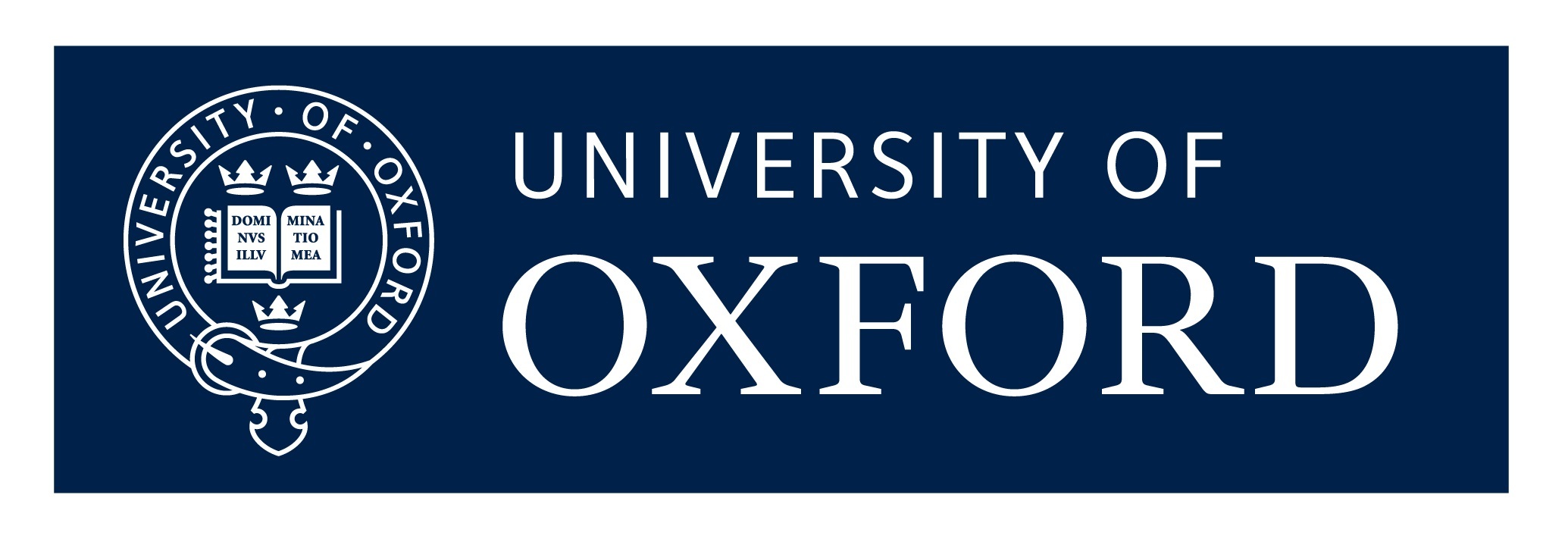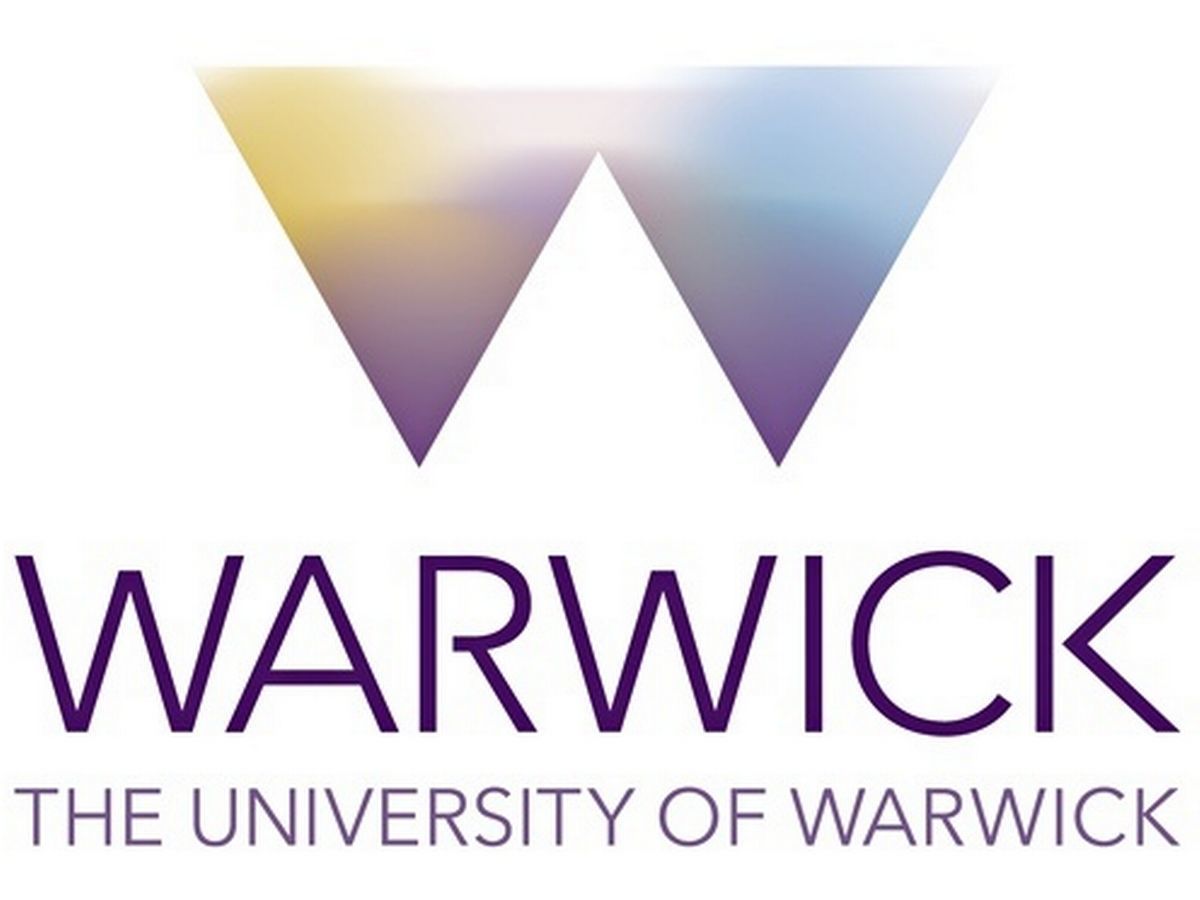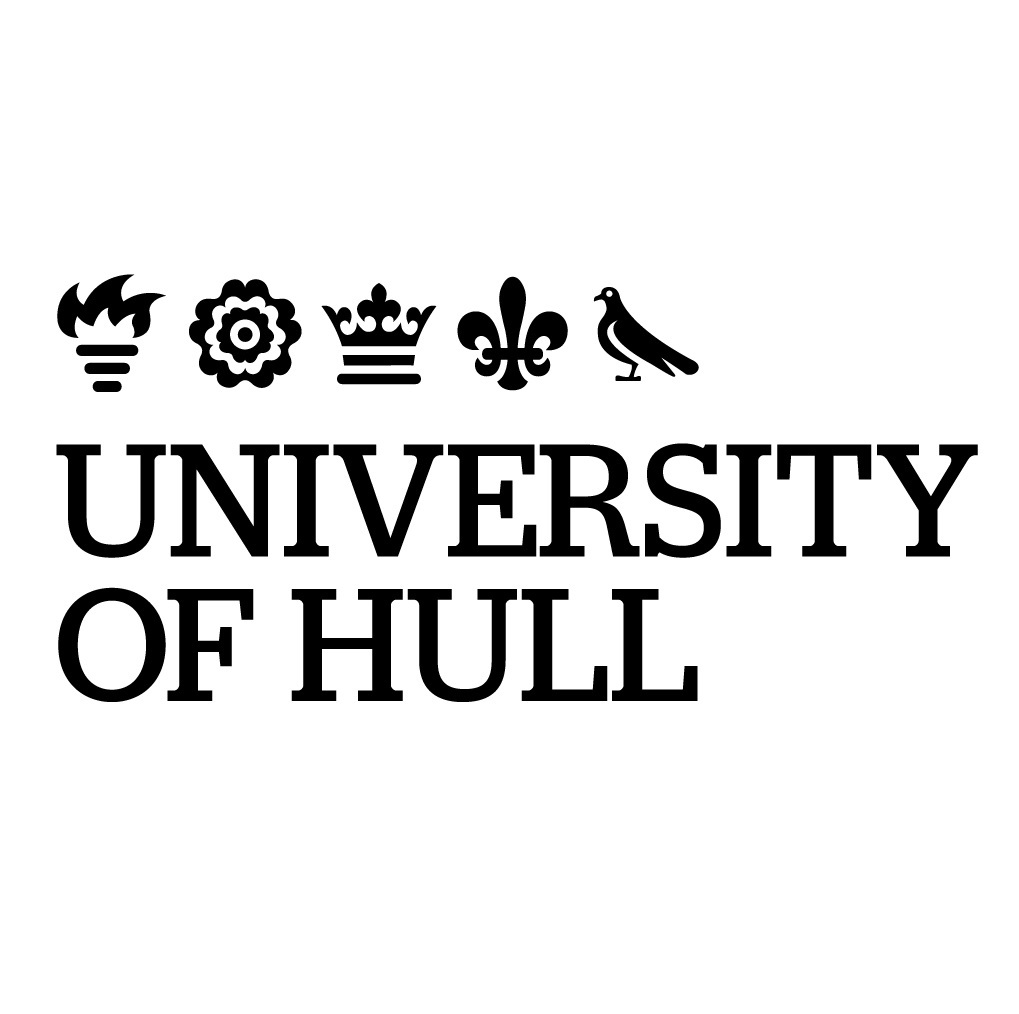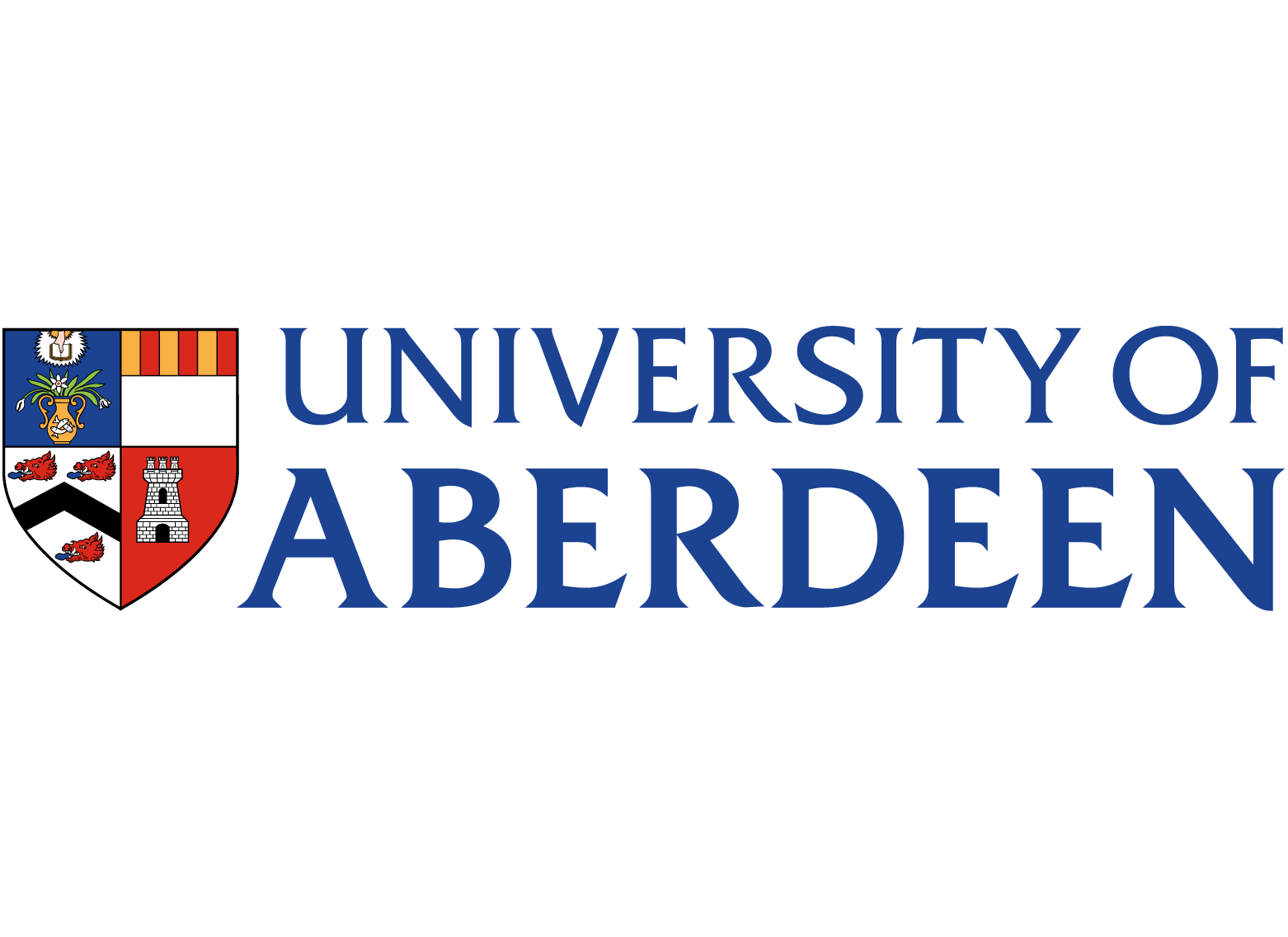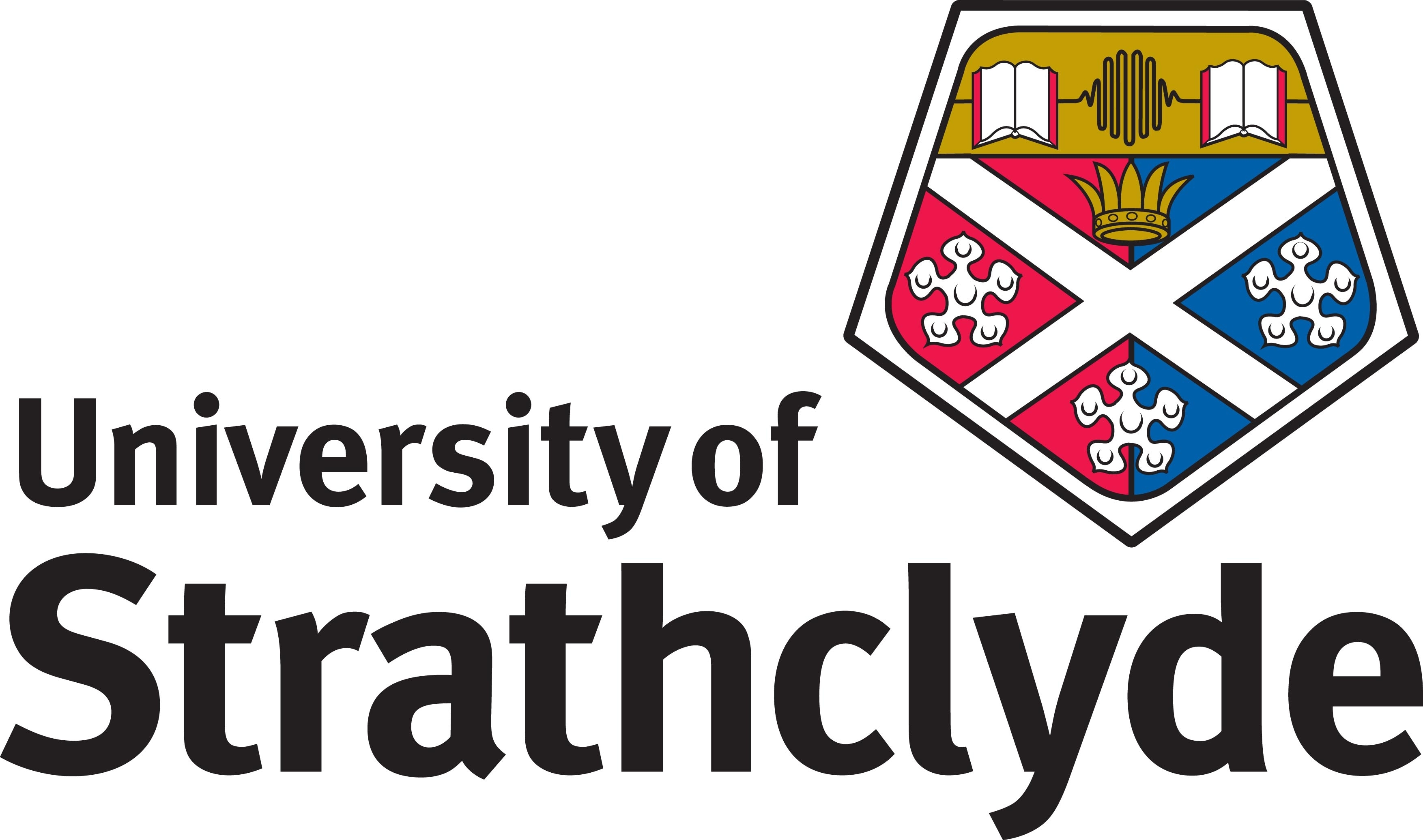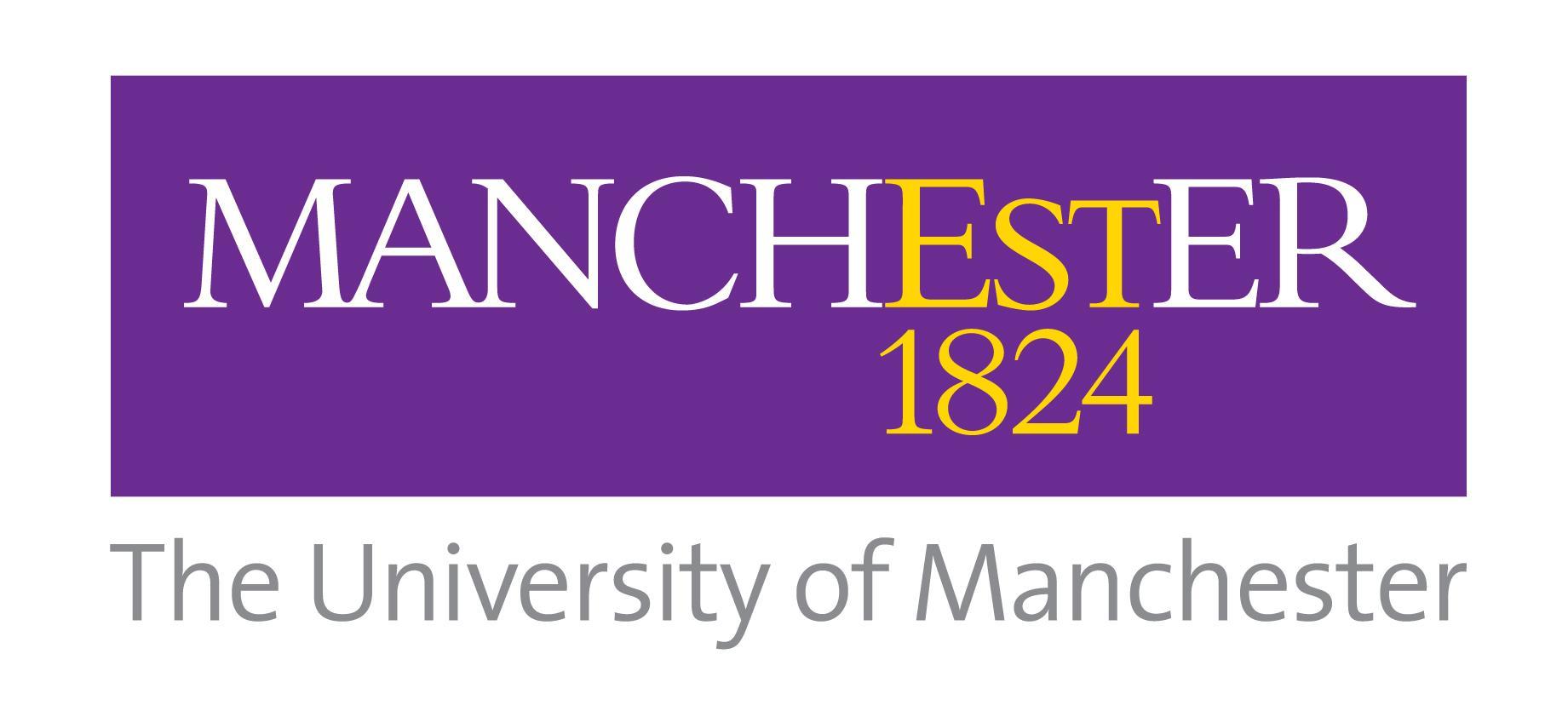The new Supergen Offshore Renewable Energy (ORE) Hub launched to a packed house at their first annual assembly event, held at University of Plymouth’s Sherwell Centre on Tuesday 22nd January. Amongst the announcements were a new flexi-fund to inspire and enable innovative ORE research, and a concept demonstration of the Hub’s Research Landscape tool - designed to make academic research more accessible to a wider range of stakeholders.
Delegates also embraced the opportunity to question a range of industry experts from across the spectrum of Offshore Wind, Wave and Tidal ORE in a panel chaired by Si Dilks, Head of Nuclear & Renewable Innovation, Department for Business, Energy & Industrial Strategy (BEIS).
On the panel were:
- Marie Berthelot, Head of Renewables R&D UK, EDF Energy who shared EDFs CAP 2030 project championing low-carbon growth.
- Rob Bray, Blade Development Manager at SIMEC Atlantis Energy who provided an update on MeyGen tidal-stream project.
- Elva Bannon, Senior Research Engineer at Wave Energy Scotland (WES) updated on the work of WES, which included the rationale behind their Stage Gate Design Tool.
- Thomas Choisnet, Chief Technology Officer at Ideol who addressed some of the technical challenges in developing structures for floating Offshore Wind.
- Will Apps, Head of Energy Development at the Crown Estate who share a perspective on topics as broad as investment, data to analyse socio-economic and building operational resilience.
Ample opportunity to network was back-dropped with a Research Poster exhibition provided by members of the Hub’s fledgling Early Career Researcher Network, who had enjoyed a day long forum of their own prior to the main launch event. In another session Co-directors from 5 of the Hub’s 10 partner Universities shared overviews of the core work packages that the project will coordinate during its four year funded project.
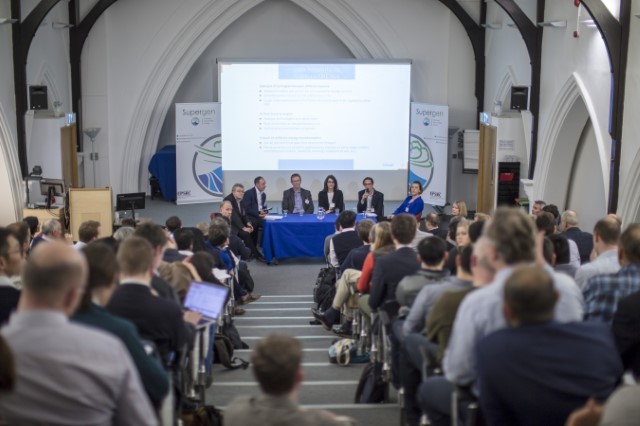
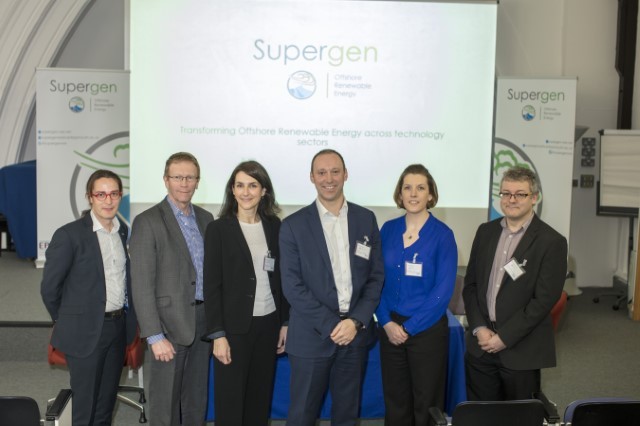
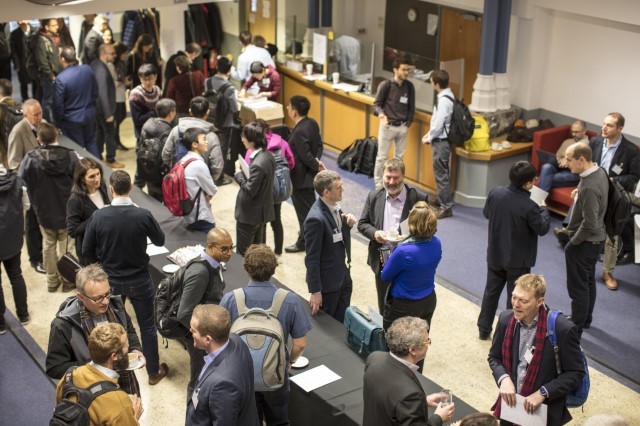
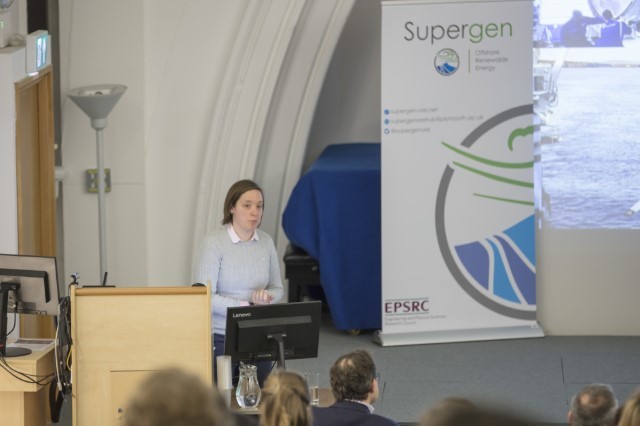
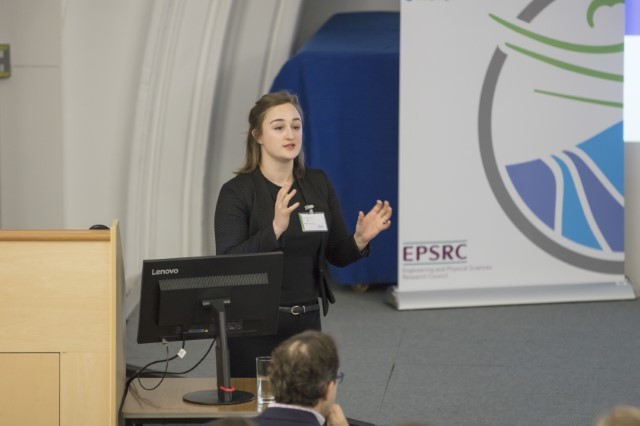
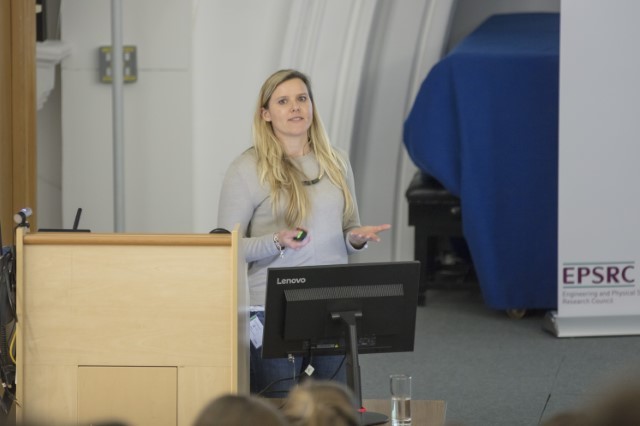
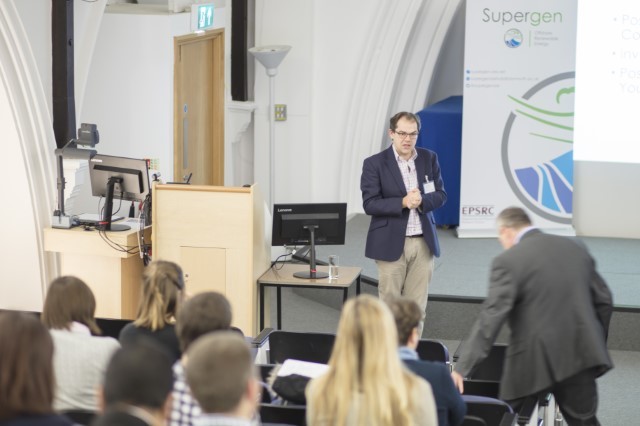
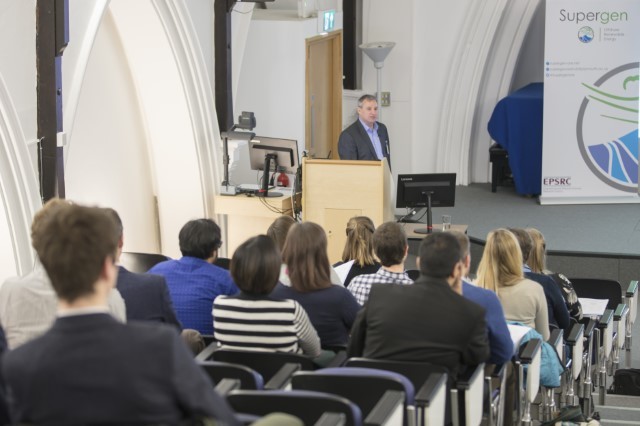
The University of Plymouth is delighted to lead the Supergen Offshore Renewable Energy (ORE) Hub, forming a partnership between leading UK research centres and facilities to build the essential collaborative approach to tackling the research challenges in the synergistic areas of wave, tidal and offshore wind.
We’re delighted that the reaction and feedback to our first event was so positive. We worked hard to ensure our agenda was relevant, not just to academia, but also industry and policy makers working in Offshore Renewables. As we develop the work of our hub, we hope more will connect with us to ensure that ORE research from UK academia both inspires innovation and is maximised for societal benefit.



